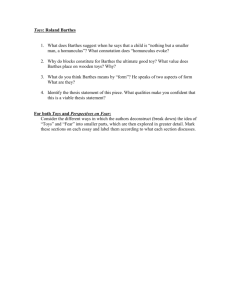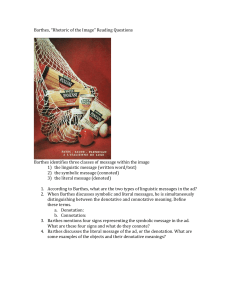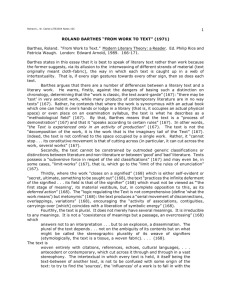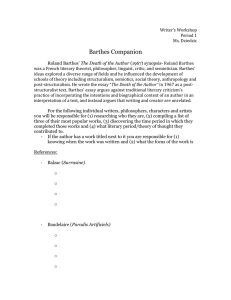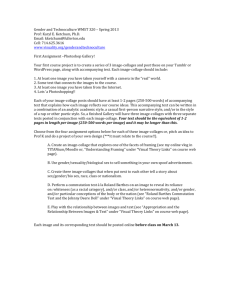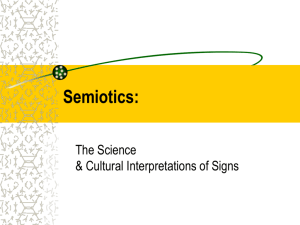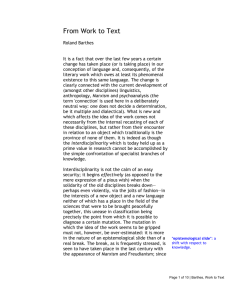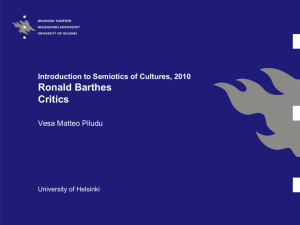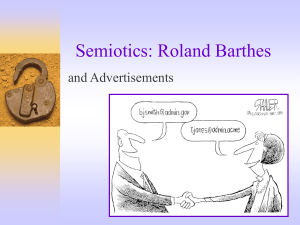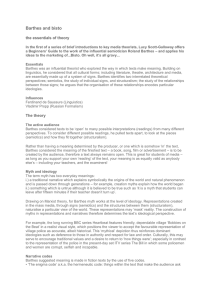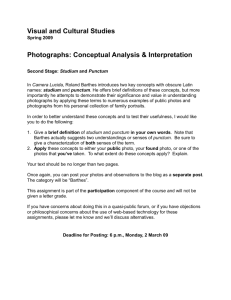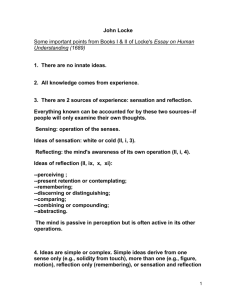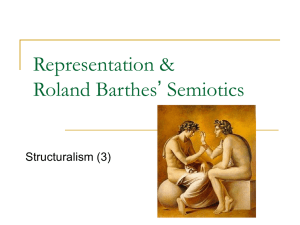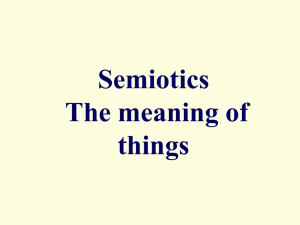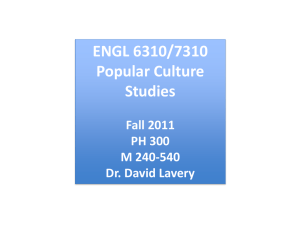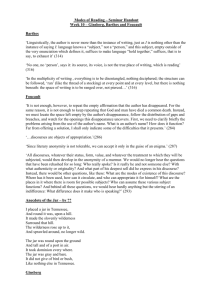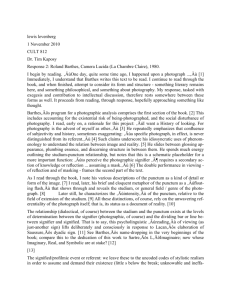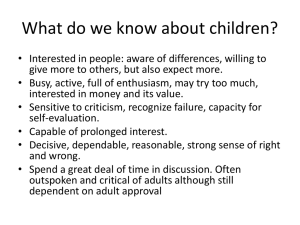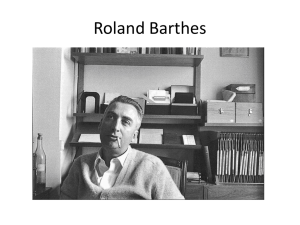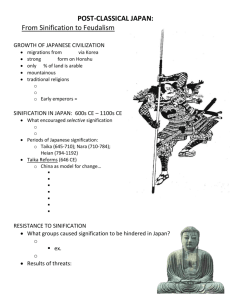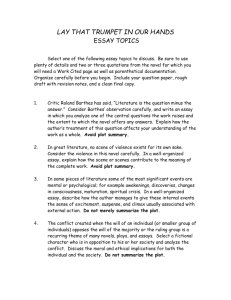Roland Barthes, "From Work to Text"
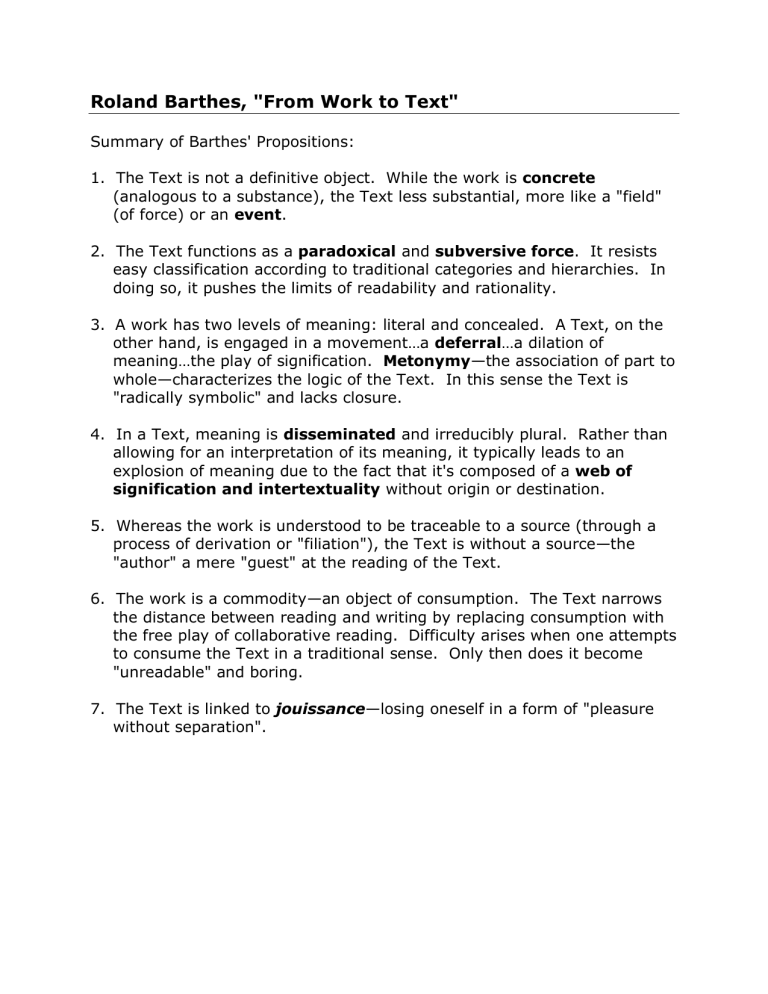
Roland Barthes, "From Work to Text"
Summary of Barthes' Propositions:
1. The Text is not a definitive object. While the work is concrete
(analogous to a substance), the Text less substantial, more like a "field"
(of force) or an event .
2. The Text functions as a paradoxical and subversive force . It resists easy classification according to traditional categories and hierarchies. In doing so, it pushes the limits of readability and rationality.
3.
A work has two levels of meaning: literal and concealed. A Text, on the other hand, is engaged in a movement…a deferral …a dilation of meaning…the play of signification. Metonymy —the association of part to whole—characterizes the logic of the Text. In this sense the Text is
"radically symbolic" and lacks closure.
4. In a Text, meaning is disseminated and irreducibly plural. Rather than allowing for an interpretation of its meaning, it typically leads to an explosion of meaning due to the fact that it's composed of a web of signification and intertextuality without origin or destination.
5. Whereas the work is understood to be traceable to a source (through a process of derivation or "filiation"), the Text is without a source—the
"author" a mere "guest" at the reading of the Text.
6. The work is a commodity—an object of consumption. The Text narrows the distance between reading and writing by replacing consumption with the free play of collaborative reading. Difficulty arises when one attempts to consume the Text in a traditional sense. Only then does it become
"unreadable" and boring.
7. The Text is linked to jouissance —losing oneself in a form of "pleasure without separation".
